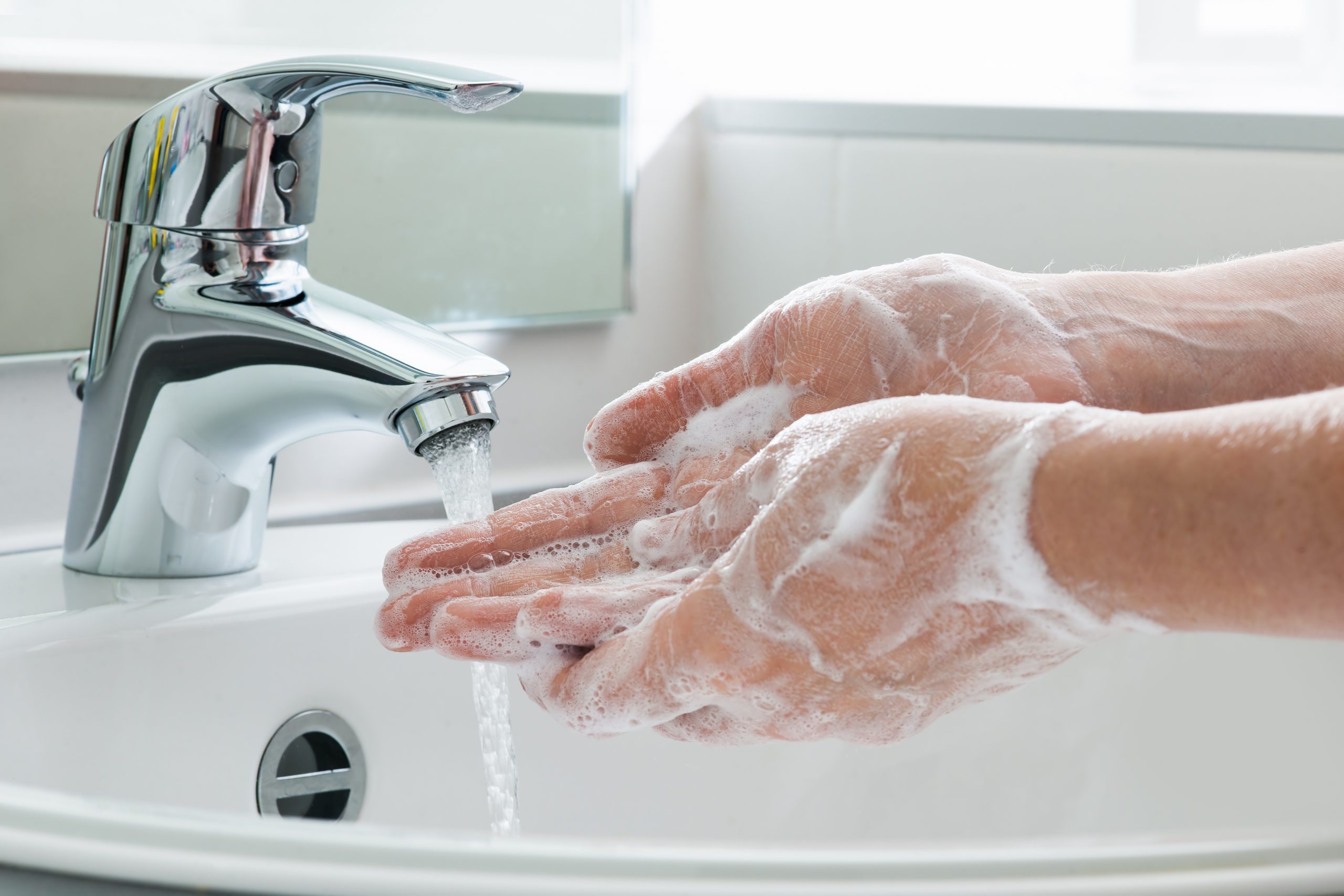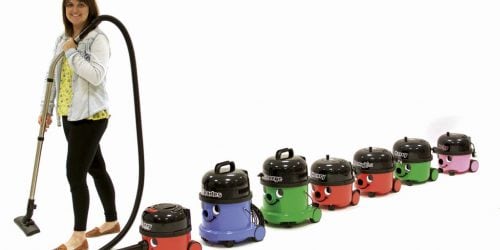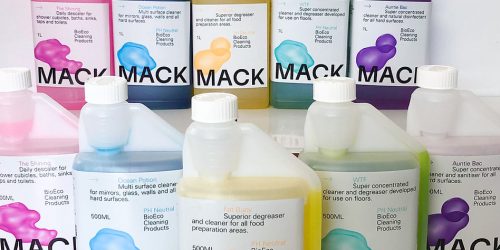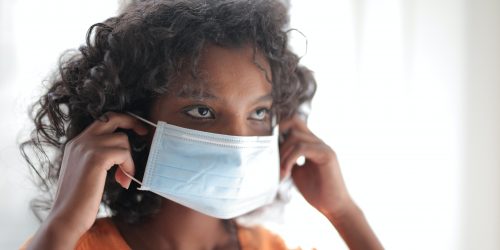Purchasing guide: How to choose your personal hygiene products
Good personal hygiene plays an important role in protecting employee health and well-being at work. Our purchasing guide contains information and recommendations for choosing products that are effective, with no risk to health, and environmentally friendly.
Personal hygiene products in the workplace
While every employee is responsible for their own personal hygiene, employers also have a role to play when it comes to personal hygiene at work. Therefore, they need to make the necessary products available to comply with hygiene rules applicable to their business sector. This equipment protects employees’ everyday health.
Effective products for proper hand hygiene

Personal hygiene begins with hand hygiene. In offices, warehouses and workshops, employees touch a multitude of surfaces. Proper hand hygiene is essential to prevent the spread of bacteria and hand-borne viruses. Mild soap and water are usually enough for washing hands properly. Removing very stubborn dirt calls for industrial soap. Water and hand sanitisers are used for full disinfection.
Mild soap
Traditional mild soap remains the essential product for washing hands. The ingredients that go into soap vary by manufacturer. Here are four things to think about when making your purchase:
- How effective is the soap (bacteria, yeasts and viruses);
- How gentle is it on the skin and the environment;
- The type of soap and dispenser (foam, liquid or solid);
- Employee well-being (scent, moisturising action, texture, etc.).
How effective is the soap?
Antimicrobial soap is the first barrier against infection. It limits the spread of many bacteria. The fungicidal action destroys yeasts and fungi. To fight hand-borne viruses (flu, rhinovirus, etc.), soap with antiviral properties will be necessary when there is a breakout. This type of soap, however, is a little harsher on the skin.
How gentle is it on the skin and the environment?
Soap manufacturers use glycerine due to its strong moisturising properties. This substance is non-irritating and not highly allergenic. There are two forms of glycerine: Synthetic glycerine, made from petroleum, and natural glycerine, made from vegetable oil. Soap containing active plant-based ingredients is an ecological choice.
Soaps with a neutral pH, between 6.5 and 7.5, are the gentlest on the skin. Paraben-free, EDTA-free[2] and preservative-free types effectively prevent allergic reactions and skin irritation. Paraben is an endocrine disruptor with well-known harmful effects on health.
Type of soap and dispenser
With foam soap, a single push dispenses enough for users to wash their hands. Foam also eliminates liquid splashes. This feature makes it easier to clean surfaces and helps keep bathrooms clean. Foam soap is the perfect choice for very busy bathrooms. It can only be used with dispensers fitted with a foam pump.
Liquid soap is highly suitable for the work environment as it is very easy to use, easy to refill, and cost-effective. Cartridge dispensers are much easier to maintain. Refillable dispensers mean containers can be kept topped up.
Hand wipes are useful when there is no access to a water supply.
Industrial soap
Professional soap cleans stubborn dirt. It is used in kitchens, construction, printing, repair garages and so on. Exfoliating microbeads enhance the mechanical effects of friction for deep cleansing. Formulas enriched with glycerine or skin-friendly additives cleanse stubborn stains while caring for hands. For damaged or sensitive skin, choose a solvent-free product. Cleaning wipes are handy when there is no water supply.
Soap in the form of gel, scouring paste or cleaning wipes… Choose your product according to the type of dirt and frequency of use.
Disinfectant gels
Washing hands with soap and water is the most reliable way to eliminate bacteria. Hand sanitiser is no substitute for soap but should be used as well. It sanitises hands but does not remove dirt.
Water and alcohol-based hand sanitisers are effective, provided they contain at least 60% alcohol. Quoting European standards on their product sheets certifies that they have been tested on a category of microorganisms. The EN14476 standard indicates, for instance, that the product is virucidal, bactericidal and fungicidal.
Hand sanitiser dispensers can be refilled with cartridges or with 5-litre containers. The first type of dispenser is more convenient to maintain, the second offers excellent value for money. You can also buy office-size bottles (0.5 l) or pocket hand sanitisers.
There are also moisturising hand sanitisers. Our 5L Hand Sanitiser Gel moisturises as it cleans making it ideal for dry skin. This product disinfects and deeply hydrates the hands.
Moisturising hand and body creams
Water, cold, exposure to irritants or wearing gloves can make hands dry. Applying hand cream regularly protects the skin and prevents it from drying out. You can install moisturising lotion dispensers in the toilets or give out tubes of moisturising cream to your employees.
Moisturising body creams also have their place in the cloakroom at work. They improve personal hygiene by protecting the skin from pollution, chemicals, temperature fluctuations and so on. The formulas based on natural ingredients are gentle on the dermis layers and on the environment.
Sunscreen and protective clothing
Intense or prolonged exposure to the sun is dangerous for the health of employees who work outdoors. To minimise risk, employers can provide their employees with total sun protection equipment:
- Loose work clothing which protects the skin;
- Sun hats covering the head and neck;
- UV-resistant safety glasses;
- Sunscreen (SPF30 or SPF50).
Sunscreens with SPF[1] 30 or 50 come into the “high protection” category. They offer guaranteed protection against UVB rays. However, the SPF index does not guarantee protection against UVA. Check the product specifications to find out if a product is effective against this type of ultraviolet rays.
Mosquito repellent
Although mosquito repellent sprays keep mosquitoes away very effectively, their long-term effects can be harmful to health. In Central and Northern Europe, the risk of getting infections from a mosquito bite is very low, so light protection is enough.
Mosquito bites often cause itching or even allergic reactions. A “sting soothing” spray relieves itching by neutralising the mosquito’s saliva which is responsible for this irritation.
Remember to provide cotton pads and cotton buds in the cloakroom and medicine cabinet. These are essential accessories for cleansing skin gently or for disinfecting a wound.
The Manutan soap and personal hygiene range includes a selection of products that are gentle on the skin and the environment. Explore our “Hygiene” product category.
[1] Sun Protection Factor
[2] Ethylenediaminetetraacetic acid (EDTA)






